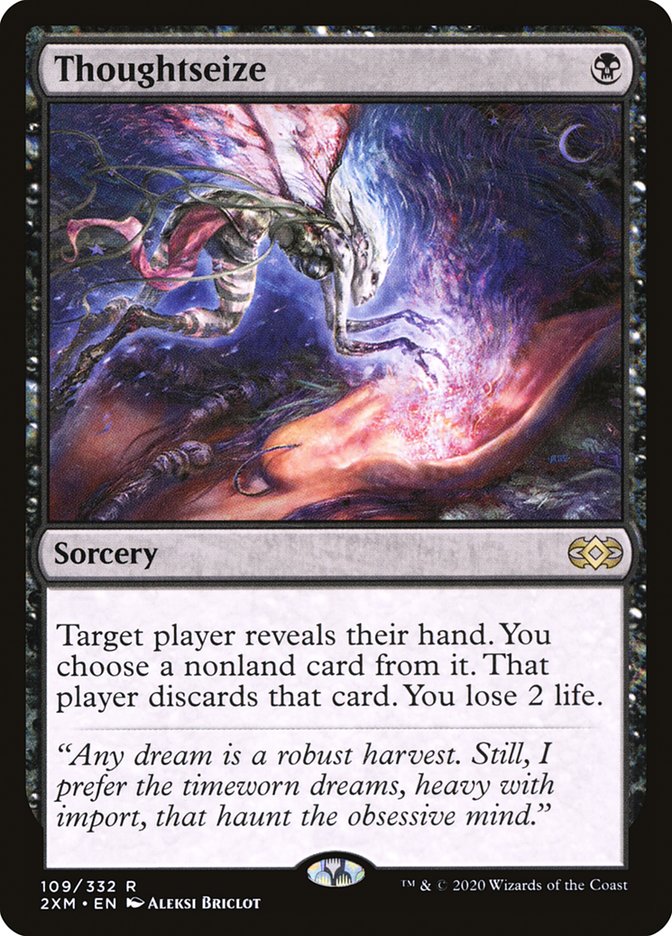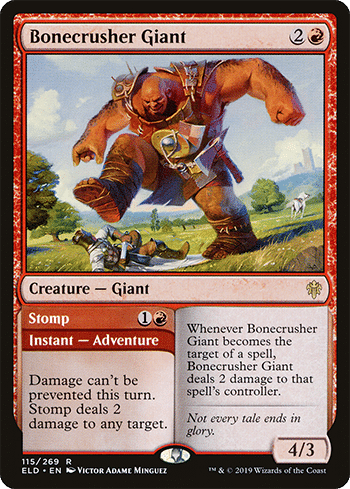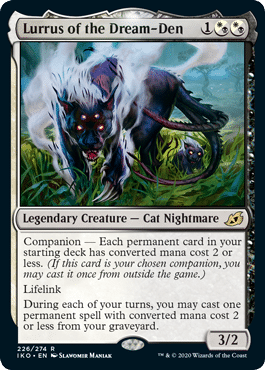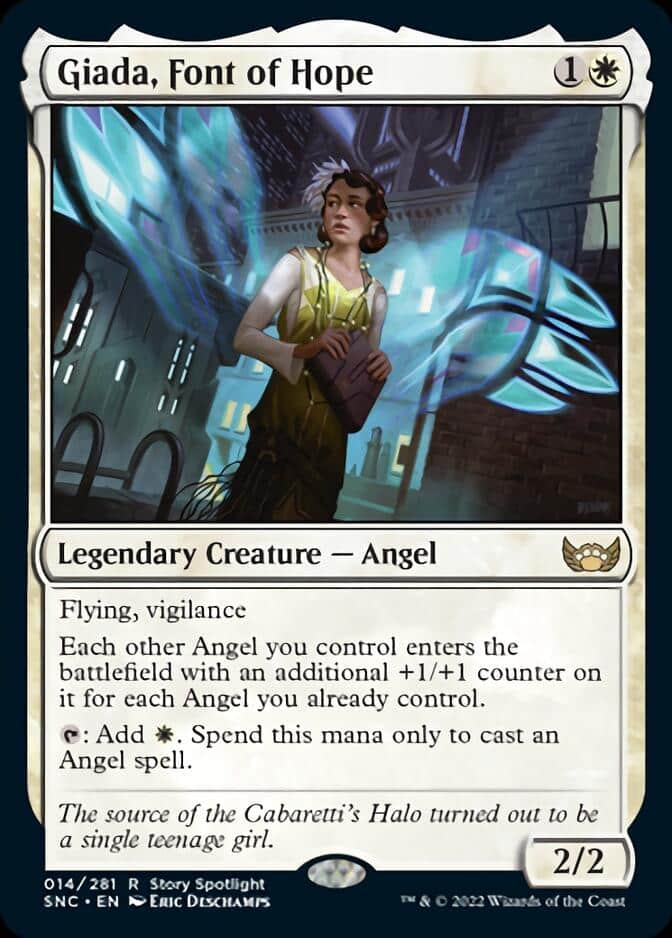With nearly thirty years of history, Magic: The Gathering has many casual and competitive MTG formats. When you’re just starting to play, this can make things very confusing. Thankfully, we’re here to help. Whether you’re looking to play Constructed, Eternal, or Limited formats, this guide should tell you what you need to know.
Constructed MTG Formats
What are the rules for constructed formats in Magic: The Gathering?
In Magic: The Gathering, many DCI Sanctioned formats follow the same general ruleset for deck construction. Which cards, sets, and expansions are legal in different MTG formats varies greatly; however, the rules are typically consistent. Here’s a quick rundown of everything you need to know about the rules in MTG’s constructed formats.
- 60-card main deck
- 15-card optional sideboard
- No more than four copies for any card in the main deck and sideboard combined (except for basic lands)
- No banned cards
- 20 starting life
Players draw seven cards when starting a Magic: The Gathering game in a constructed format. If desired, players may take a “mulligan” to attempt to draw a better starting hand. To do this, a player returns their hand to their deck, shuffles, and then draws seven cards once more from their library. After repeating this process any number of times, that player must put a card back on the bottom of their library for each time they mulliganed. Known as a “London Mulligan,” this has been the official ruling since the release of Core Set 2020.
Standard

As the most widely sanctioned format in Magic: the Gathering, Standard is likely the first format you’ll interact with. As a rotating constructed format, Standard players have access to roughly the past three years of cards released in expansion and core sets. This makes Standard an incredibly competitive format that encourages deck building and experimentation.
Four Standard-legal Magic: The Gathering sets are released each year. Each year when the Autumn set releases, the four oldest sets in Standard rotate out and are no longer legal.
What Sets are Legal in Standard?
- Streets of New Capenna
- Kamigawa: Neon Dynasty
- Innistrad: Crimson Vow
- Innistrad: Midnight Hunt
- Dominaria United
- The Brother’s War
- Phyrexia: All Will Be One
- March of the Machine
- March of the Machine: The Aftermath
Read More: The Best Wilds of Eldraine Commander Cards
Modern

In Modern, players construct a 60-card deck with cards from expansion sets and core sets from Eighth Edition forward. Cards released in the Modern Horizons, Modern Horizons 2, and Lord of the Rings: Tales of Middle-Earth sets are also legal to play in this format. The vast number of cards that are legal to play in Modern gives the format an exciting variety to its metagame managed by its banned list.
Read More: The Best MTG Tutor Cards for EDH (Updated)
Pioneer

Introduced in 2019, Pioneer is a new format for Magic: The Gathering that allows expansion and core sets from Return to Ravnica forward. Requiring a 60-card minimum deck and an optional 15-card sideboard, Pioneer is designed as a way for players to use cards that are no longer legal in Standard after rotation.
The Pioneer format is not yet available on MTG Arena, though there are plans for Pioneer to be tournament-ready by the end of 2024. However, for now, Explorer is available as a replacement. Explorer follows the same ruleset as Pioneer, and Wizards of the Coast is planning to add cards to MTG Arena to make Explorer an exact copy of Pioneer.
Read More: Top 10 Best MTG Rat Cards in Commander
Alchemy

As one of the newest MTG formats, Alchemy is only available to play digitally on MTG Arena. In Alchemy, players can use all the cards in the Standard format alongside new-to-digital cards featuring mechanics designed explicitly for MTG Arena. The Alchemy format also features rebalanced versions of existing cards, frequently changing to “keep the format fresh and exciting.”
Read More: Top 10 Most Expensive MTG Wilds of Eldraine Cards!
Historic

Historic is another recent format that is exclusive to MTG Arena. As a digital-first format, Historic features all the expansions and core sets from Ixalan onwards and a select number of cards from MTG’s history. Alongside cards picked by Wizards of the Coast, Historic also uses rebalanced Alchemy Cards, much to the chagrin of many players. Similar to Alchemy, this is designed to “keep the format fresh and exciting”; however, many players detest the change.
Read More: Top 10 MTG Best Modern Decks!
Eternal formats in Magic: The Gathering
Vintage

In Vintage, players can construct a 60-card deck using almost every card printed in MTG’s history. Some cards, such as Acorn cards, Chaos Orb, Ante cards, and Shahrazad are banned. Other cards, however, are merely restricted. Cards on the Vintage restricted list can still be played, but players may only include one copy of these cards in their main deck and sideboard combined.
The Vintage restricted list allows players to use incredibly powerful cards such as the Power Nine. As a result, Vintage decks are often very costly.
Read More: Top 10 MTG Best Pauper Decks
Legacy

Known initially as Classic-Restricted, Legacy is often described as a bridge between Constructed and Eternal formats. With a more comprehensive banned and restricted list than Vintage, Legacy is usually more affordable and accessible for new players (It is still incredibly expensive compared to MTG formats with a smaller legal pool of cards). In Legacy, players can construct a 60-card deck and sideboard from any card in Magic: The Gathering’s history outside of the format’s banned and restricted list.
Read More: Top 10 MTG Best Pauper Decks
Pauper

First developed for Magic Online, Pauper is a format in which players must build a 60-card deck out of only common cards and basic lands. Outside of the format’s banned and restricted list, players may use any common card that has been released in MTG’s history. Like other constructed MTG formats, players may not use more than four of any individual card in the main deck and sideboard combined while following a unique ban list of overpowered commons.
Read More: Brand-New LOTR Leaks Showcase Astonishing Wraith Typal Payoffs!
Commander

Despite not being a casual DCI Sanctioned format, Commander is the most popular format in Magic: The Gathering. In Commander, players must build a 100-card deck that consists of 99 unique cards (excluding basic lands) and one Commander, which must be a Legendary creature. This chosen Commander card forms the basis of a player’s deck as the cards in a Commander deck must adhere to the commander’s color identity by only using mana symbols that also appear on the commander.
When playing Commander, a deck’s commander resides in the “Command Zone.” A Commander can be cast from the Command Zone for its expected costs, plus an additional two mana for each previous time it’s been cast from the Command Zone this game. For reference, whenever your Commander would change zones (whether from your field to graveyard, graveyard to exile, etc.), you are given the option to instead put your Commander back into the Command Zone. Each time you do this, casting your Commander will cost two more. A unique rule when considering the zone-changing nature of the Command Zone is that a Commander will go to your graveyard briefly before moving to the Command Zone if it dies. This allows Commanders with abilities that trigger on death to activate.
Commander can be played with up to four players, typically in a free-for-all multiplayer format. Each player starts the game with 40 life, however, if a player takes 21 damage from the same commander over the course of the game, they will lose the game.
Here is the list of banned and restricted cards in the Commander format.
Read More: The Best Faeries in MTG for Commander
Brawl

Brawl doesn’t directly fit with the rest of the Eternal formats but given that Brawl games are played quite similar to Commander games, the format warrants mentioning. Brawl is a format designed for Arena where players utilize 60-card decks, featuring 59 unique cards (excluding basic lands) and one Commander. There are also a few additional rules beyond players using 60 cards that make Brawl differ from Commander. For example, any Planeswalker can be used as a Commander, and traditional Commander damage rules do not apply.
Finally, there are a couple variants of Brawl. Standard Brawl utilizes only Standard legal cards, with Command Tower and Arcane Signet as exceptions. Meanwhile, Historic Brawl utilizes the Historic card pool. Each Brawl format has its own banlist. Brawl provides Arena players with a unique Commander variant to play, even with a more limited card pool.
Read More: MTG Doctor Who Release Date, Leaks, Spoilers, More
Limited formats in Magic: The Gathering
Booster Draft

A Booster Draft is a format for up to eight players in which you draft the contents of three booster backs to build a 40-card deck. The act of drafting has the pod of players typically sitting around a table, with each player picking one card from a booster pack and then passing it to their neighbor. For the first pack, players will pass to their neighbor on the right. Players will pass to their neighbor on the left during the second pack. Lastly, for the third pack, players will pass to their neighbor on the right once more.
Once all the cards have been drafted, players should have 45 cards which they can use to build a 40-card deck alongside any number of basic lands. This format is ideal for learning the mechanics and interactions of a set, as it allows players to build a small synergized deck.
Read More: These Wilds of Eldraine Bombs Will Dominate Your Prerelease!
Sealed Deck

In a Sealed event, players must build a 40-card deck constructed from basic lands and the contents of six booster packs. This format is an excellent way to bolster your collection of MTG cards. Typically, this is the format featured at Prerelease events. Typically, players will open six booster packs from the same set. In casual versions of the format, this is not always the case.
Read More: New Secret Lairs Showcase Major Value Imbalance
Pack Wars

Also known as Mini-Master, Pack Wars is a casual limited format in Magic: The Gathering. Two players start with a single booster pack and fifteen basic lands. Unlike other limited MTG formats, players don’t look at the contents of their booster pack to build their deck. Instead, players remove the marketing, foil, or basic land card and then three of each basic land.
Read More: Top 16 MTG Best Wilds of Eldraine Cards

